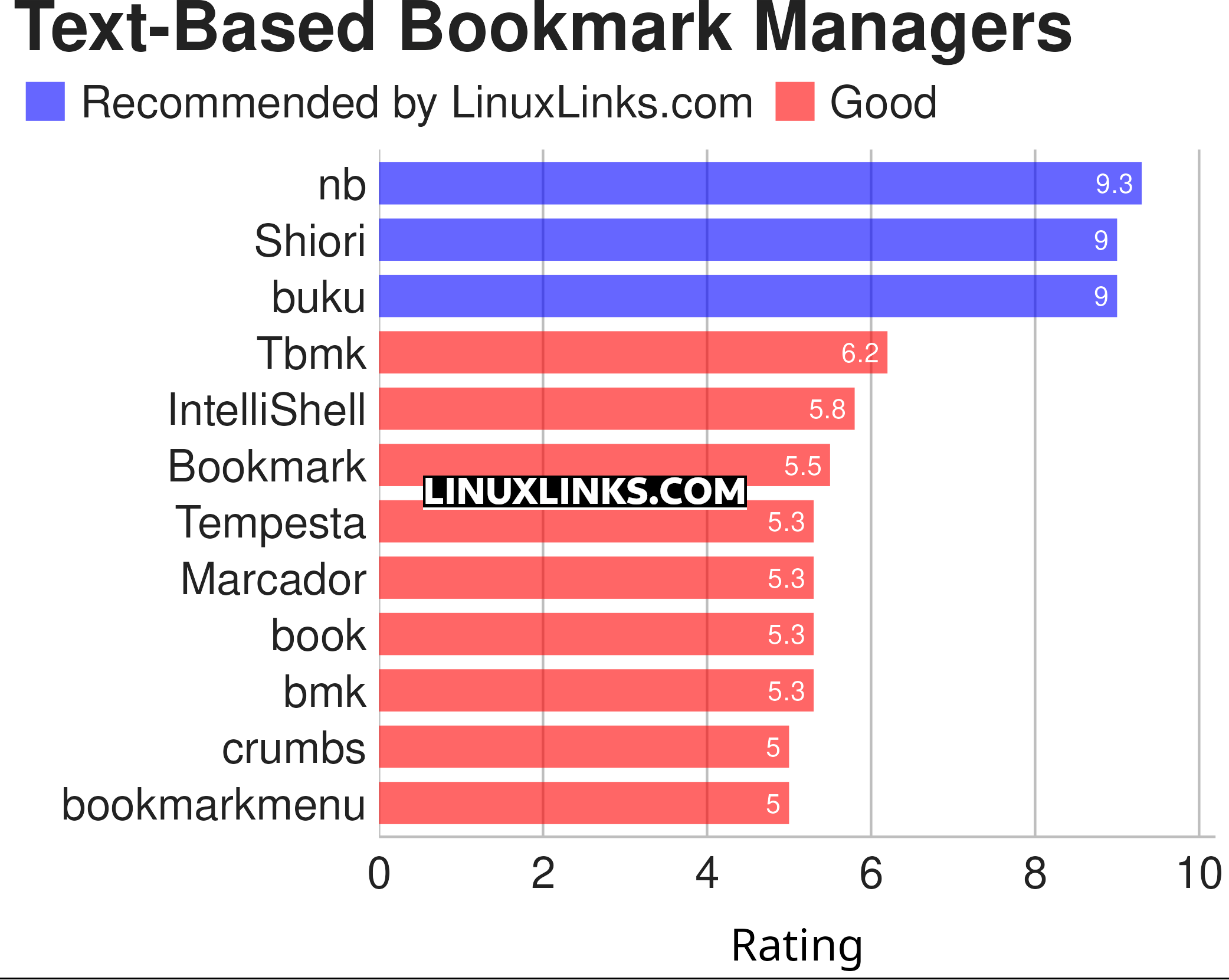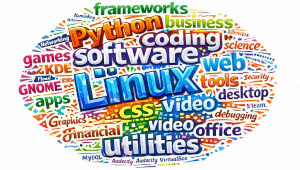Pocket, formerly known as Read It Later, is a social bookmarking service for storing, sharing and discovering web bookmarks. Mozilla is shutting down Pocket’s services on July 8, 2025. At that time users will no longer be able to access the Pocket website, apps and API.
As Pocket is not open source software, users will need to migrate away. In this article, we focus on open source text-based bookmark managers. Most of the tools featured in this article let you manage your bookmarks for websites, but there are also a few tools that let you bookmark other things such as commands. Some of the tools are sophisticated with tons of features. Others are very simple tools. Hopefully, there’s something here to meet your specific requirements.
If you’re looking for GUI and/or web-based tools, we’ll cover our picks in later articles.
Here’s our verdict captured in a legendary LinuxLinks-style ratings chart. Only free and open source software is eligible for inclusion.

Click the links in the table below to learn more about each bookmark manager.
| Text-Based Bookmark Managers | |
|---|---|
| nb | CLI and local web note‑taking, bookmarking, archiving, and knowledge base |
| Shiori | Simple bookmarks manager written in Go |
| buku | Bookmark management utility written in Python |
| Tbmk | Commands bookmark for shells |
| IntelliShell | Like IntelliSense, but for shells |
| Bookmark | Save your favourite URLs without leaving the terminal |
| Tempesta | Billed as the fastest and lightest command-line bookmark manager |
| Marcador | Minimal bookmark manager |
| book | Simple bookmark manager |
| bmk | Go bookmark tool |
| crumbs | Store commands under a meaningful name in a hierarchy |
| bookmarkmenu | Bookmark storage using the menu back end |
 Explore our comprehensive directory of recommended free and open source software. Our carefully curated collection spans every major software category. Explore our comprehensive directory of recommended free and open source software. Our carefully curated collection spans every major software category.This directory is part of our ongoing series of informative articles for Linux enthusiasts. It features hundreds of detailed reviews, along with open source alternatives to proprietary solutions from major corporations such as Google, Microsoft, Apple, Adobe, IBM, Cisco, Oracle, and Autodesk. You’ll also find interesting projects to try, hardware coverage, free programming books and tutorials, and much more. Know a useful open source Linux program that we haven’t covered yet? Let us know by completing this form. |

